
The Humber Arboretum is Toronto's sprawling nature wonderland
The Humber Arboretum, located just walking distance from the Humber College campus, is a 250-acre piece of nature conservation land consisting of walking paths and beautiful botanical gardens.
With parking for those arriving by car and access to the 191 Highway 27 Rocket northbound via Kipling Station, the Arboretum is a getaway worth visiting for everyone from butterfly enthusiasts to airplane lovers (which often fly overhead from nearby Pearson.)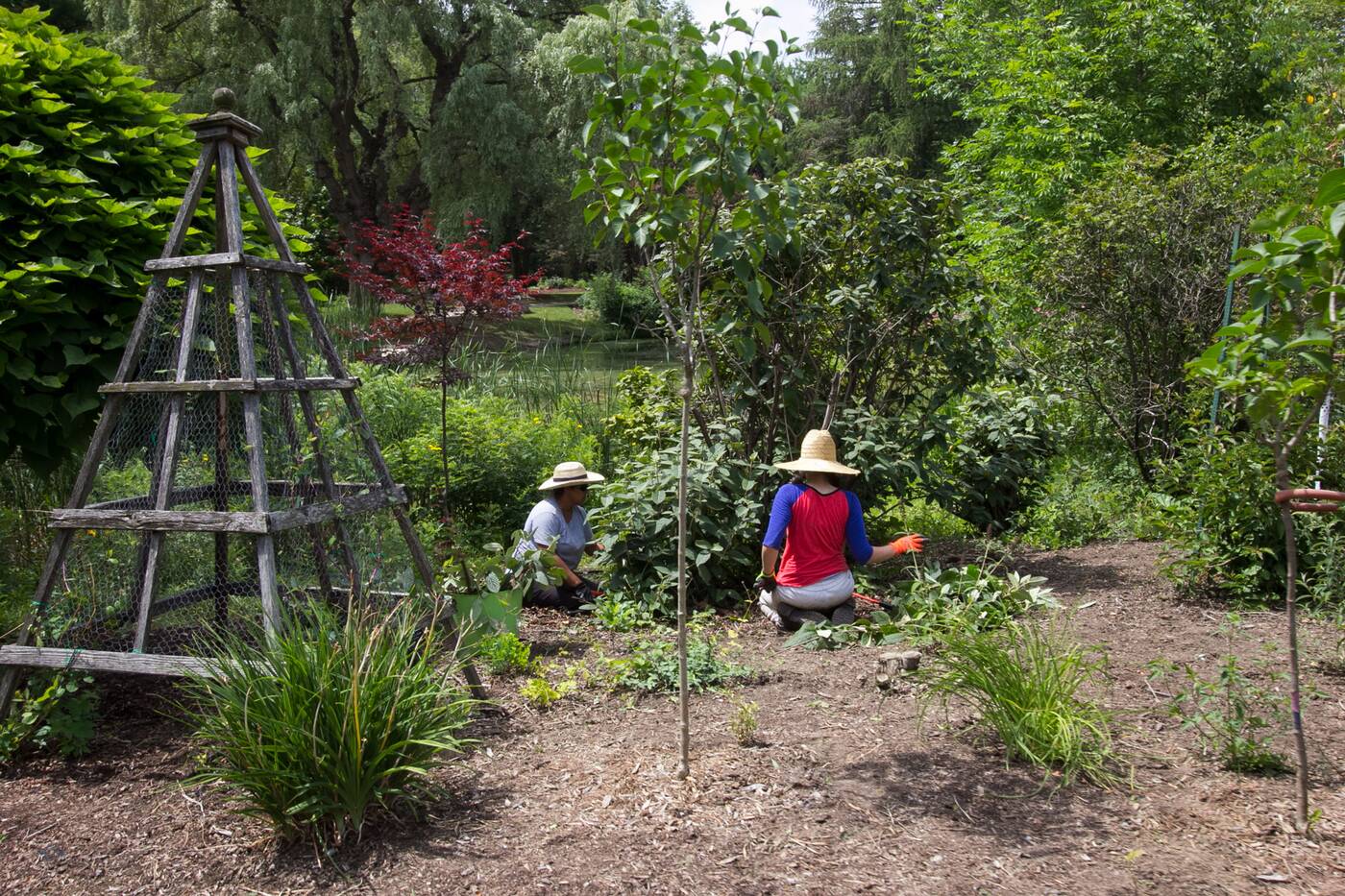 Established since 1977, the Arboretum – or 'the Arb' – was the brainchild of Humber's horticultural students of the day, who saw the undeveloped land near campus and wanted to transform it into a conservation area.
Established since 1977, the Arboretum – or 'the Arb' – was the brainchild of Humber's horticultural students of the day, who saw the undeveloped land near campus and wanted to transform it into a conservation area.
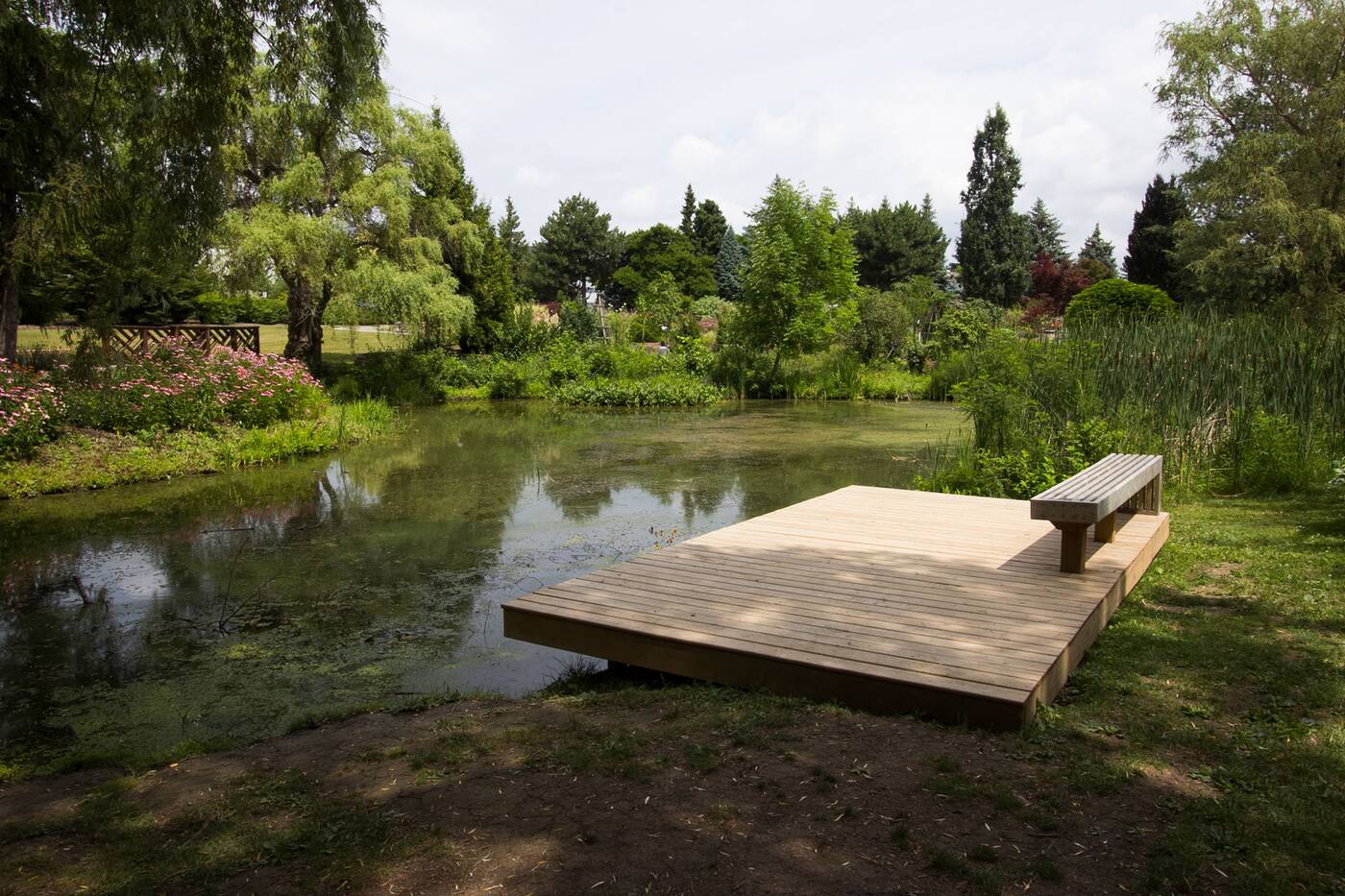 Now the land consists of ponds, bridges, and a massive collection of annuals, perennials like peonies and echinacea, bulbs, magnolia trees and even a summer cacti garden, which gets transferred to a greenhouse during the cold months.
Now the land consists of ponds, bridges, and a massive collection of annuals, perennials like peonies and echinacea, bulbs, magnolia trees and even a summer cacti garden, which gets transferred to a greenhouse during the cold months.
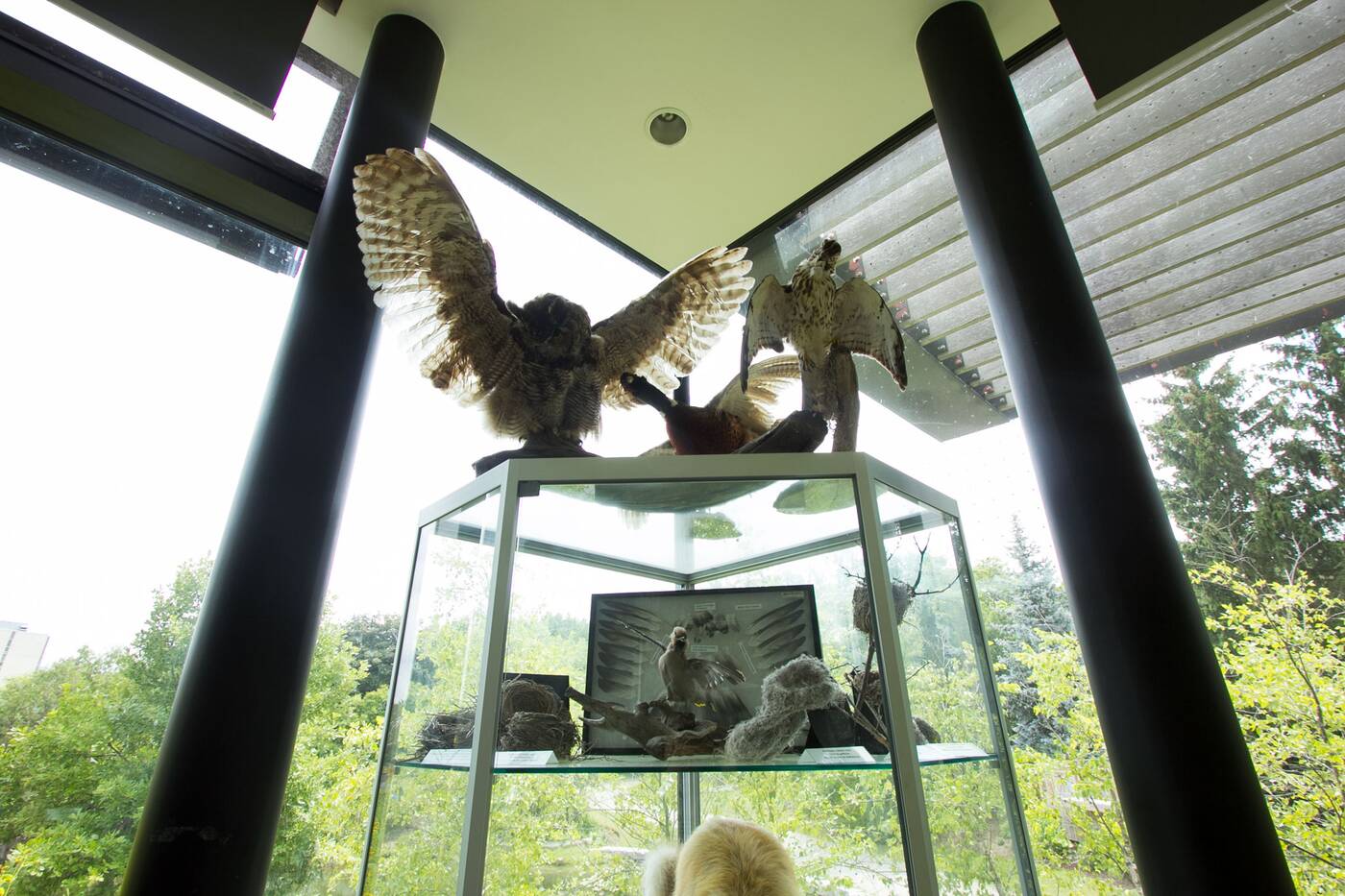 There's also the Centre for Urban Ecology, which sits atop a hill and looks out over the entire garden. A Gold Certified LEED building, this glass structure features a green roof that can absorb 10 litres of water for every square metre. Inside you'll find mostly educational stuff for kids.
There's also the Centre for Urban Ecology, which sits atop a hill and looks out over the entire garden. A Gold Certified LEED building, this glass structure features a green roof that can absorb 10 litres of water for every square metre. Inside you'll find mostly educational stuff for kids.
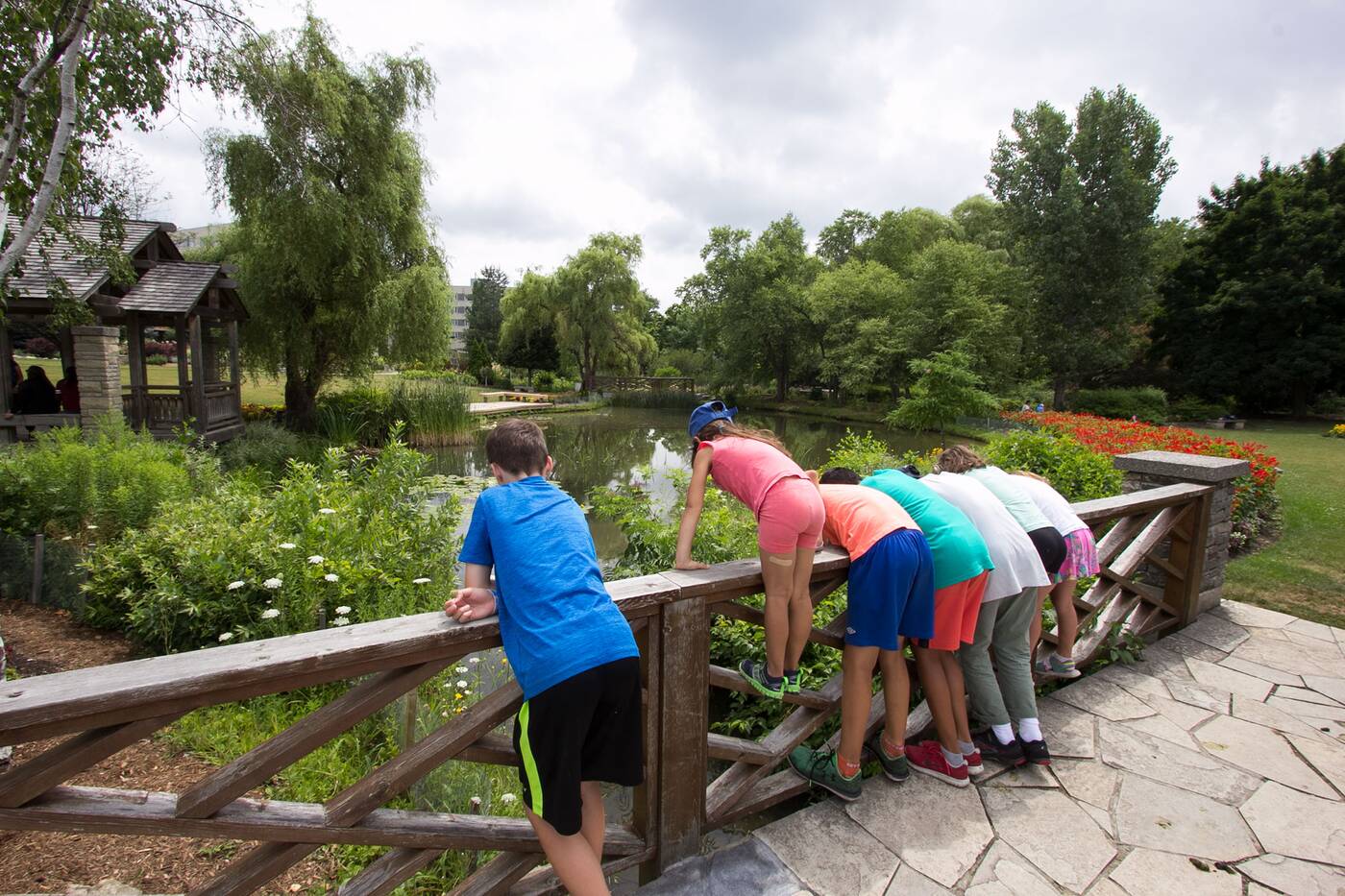 Located around the central area, which hosts children's summer camps during summer break, you'll find benches and some wooden lookouts often occupied by staff and students from Humber taking a break from school.
Located around the central area, which hosts children's summer camps during summer break, you'll find benches and some wooden lookouts often occupied by staff and students from Humber taking a break from school.
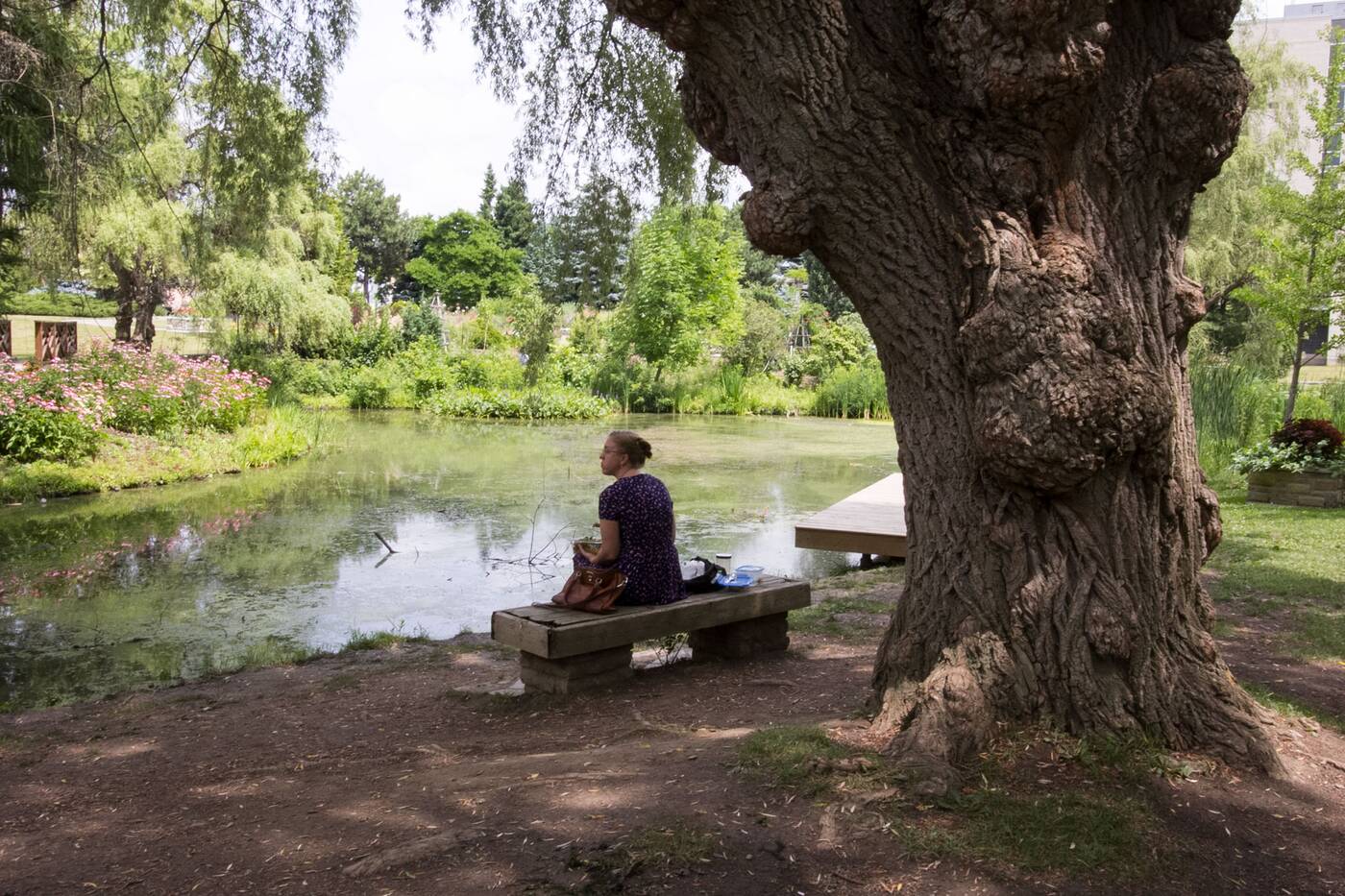 Butterfly enthusiasts will find plenty of species to observe due to the Native Pollinator Garden, an area full of pollinator-attracting plants.
Butterfly enthusiasts will find plenty of species to observe due to the Native Pollinator Garden, an area full of pollinator-attracting plants.
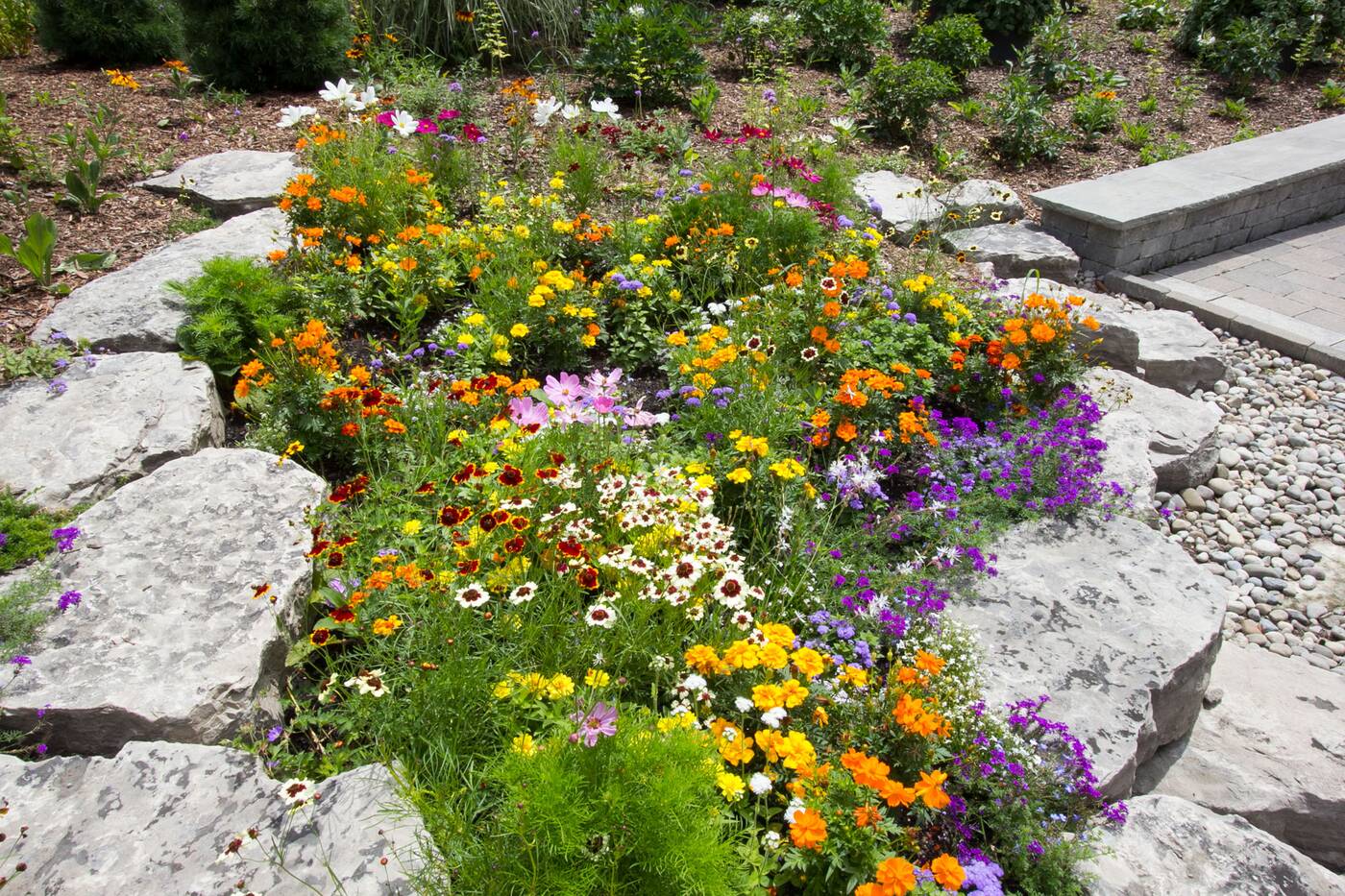 Milkweed provides monarch butterflies with plenty of space to lay their eggs. August, their migratory season, is an especially good time for monarch sightings.
Milkweed provides monarch butterflies with plenty of space to lay their eggs. August, their migratory season, is an especially good time for monarch sightings. 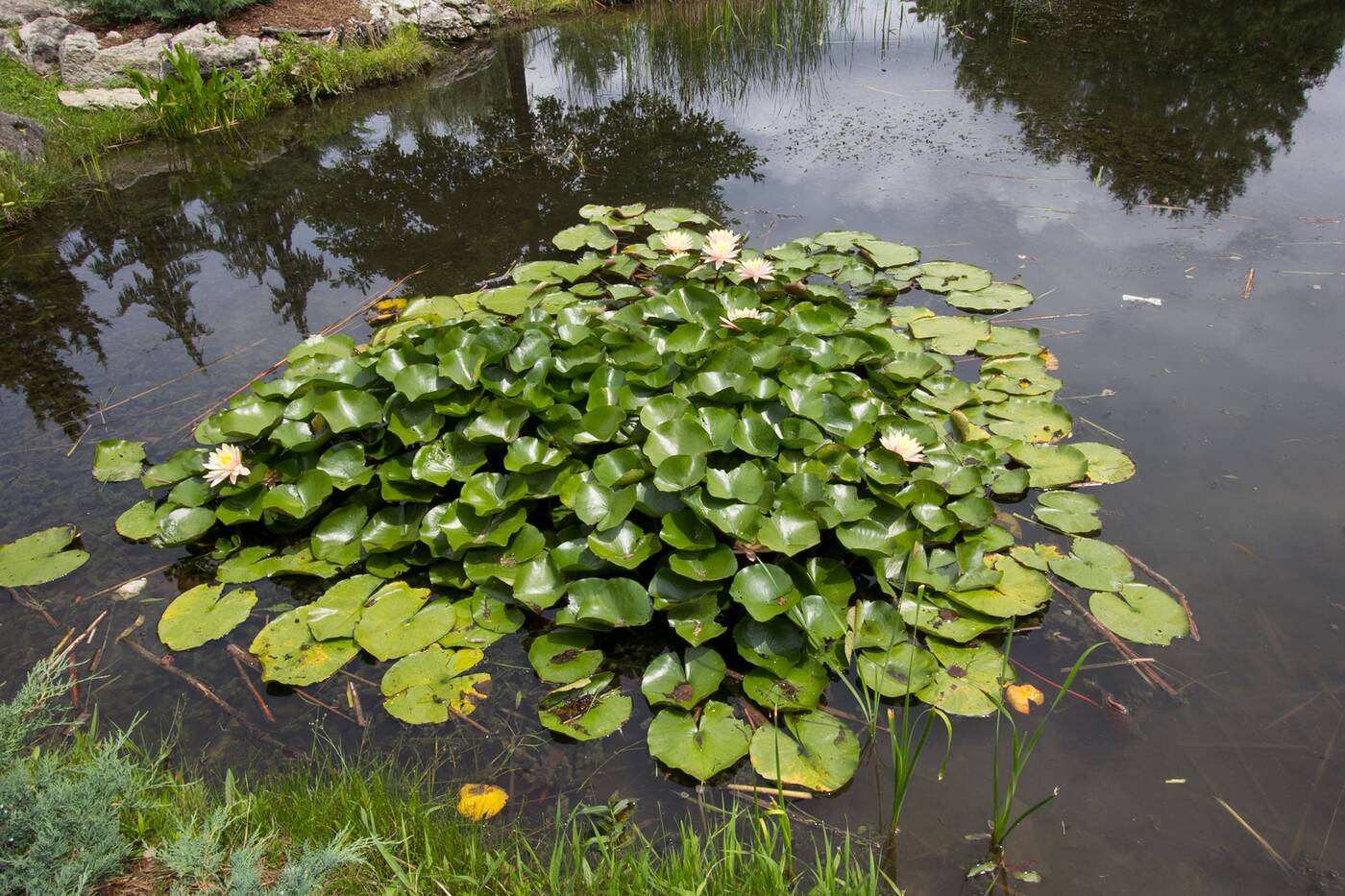 The Arb is a major migration stopover for birds, hence the emphasis on creating sustainable, bird-friendly space. You'll see bird feeders all around the garden and ― depending on the time of year ― you'll be able to spot all types of birds from hawks to woodpeckers, owls and waterfowl.
The Arb is a major migration stopover for birds, hence the emphasis on creating sustainable, bird-friendly space. You'll see bird feeders all around the garden and ― depending on the time of year ― you'll be able to spot all types of birds from hawks to woodpeckers, owls and waterfowl.
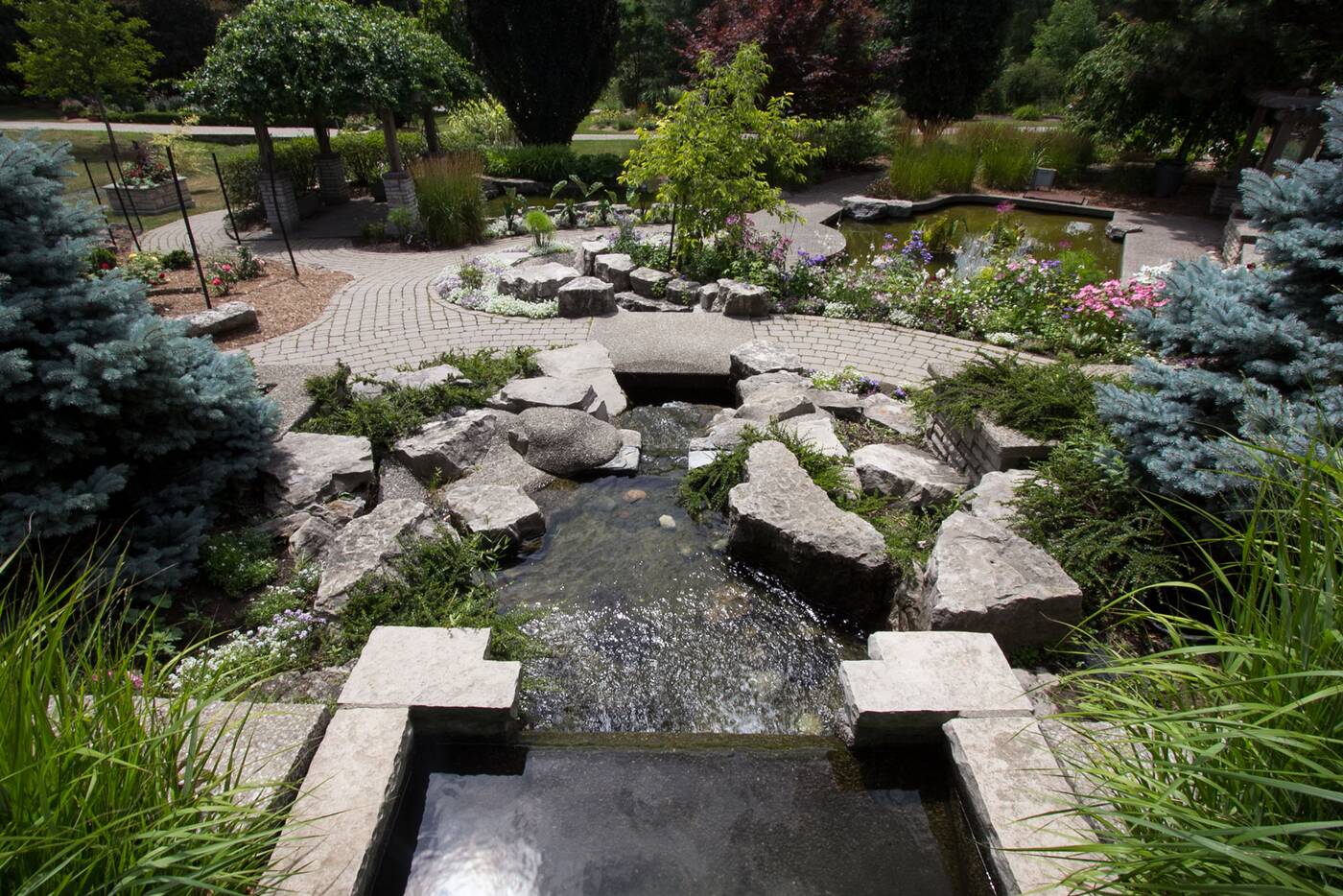 The Garden of the Rising Moon is a small section of the Arb decked out with ponds and a waterfall, created with the help from landscaping and horticultural students from Humber College.
The Garden of the Rising Moon is a small section of the Arb decked out with ponds and a waterfall, created with the help from landscaping and horticultural students from Humber College.
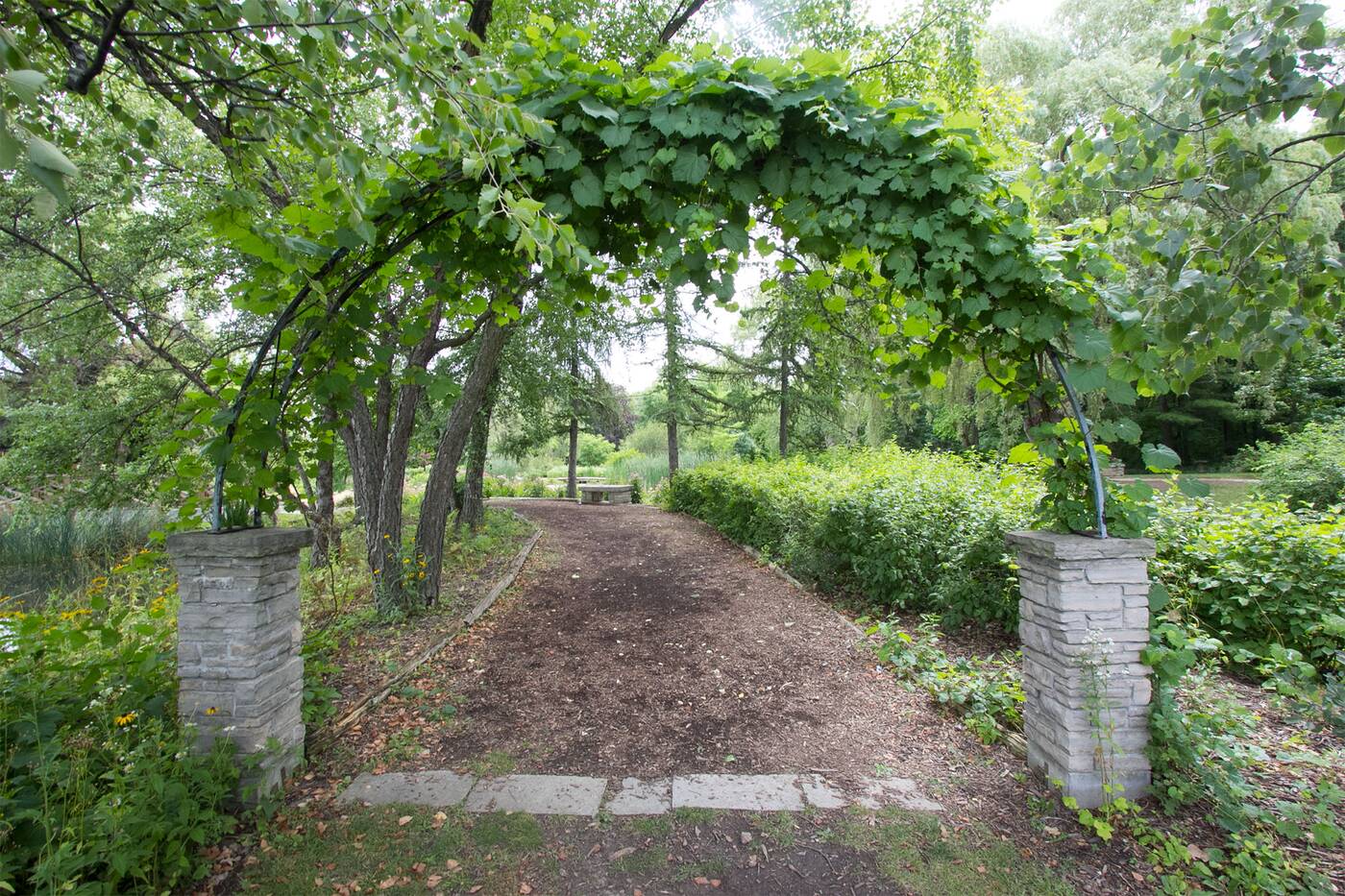 The main area of the Arb should take no more than half an hour to walk in its entirety, but a series of arches will lead you out into far more secluded trails.
The main area of the Arb should take no more than half an hour to walk in its entirety, but a series of arches will lead you out into far more secluded trails.
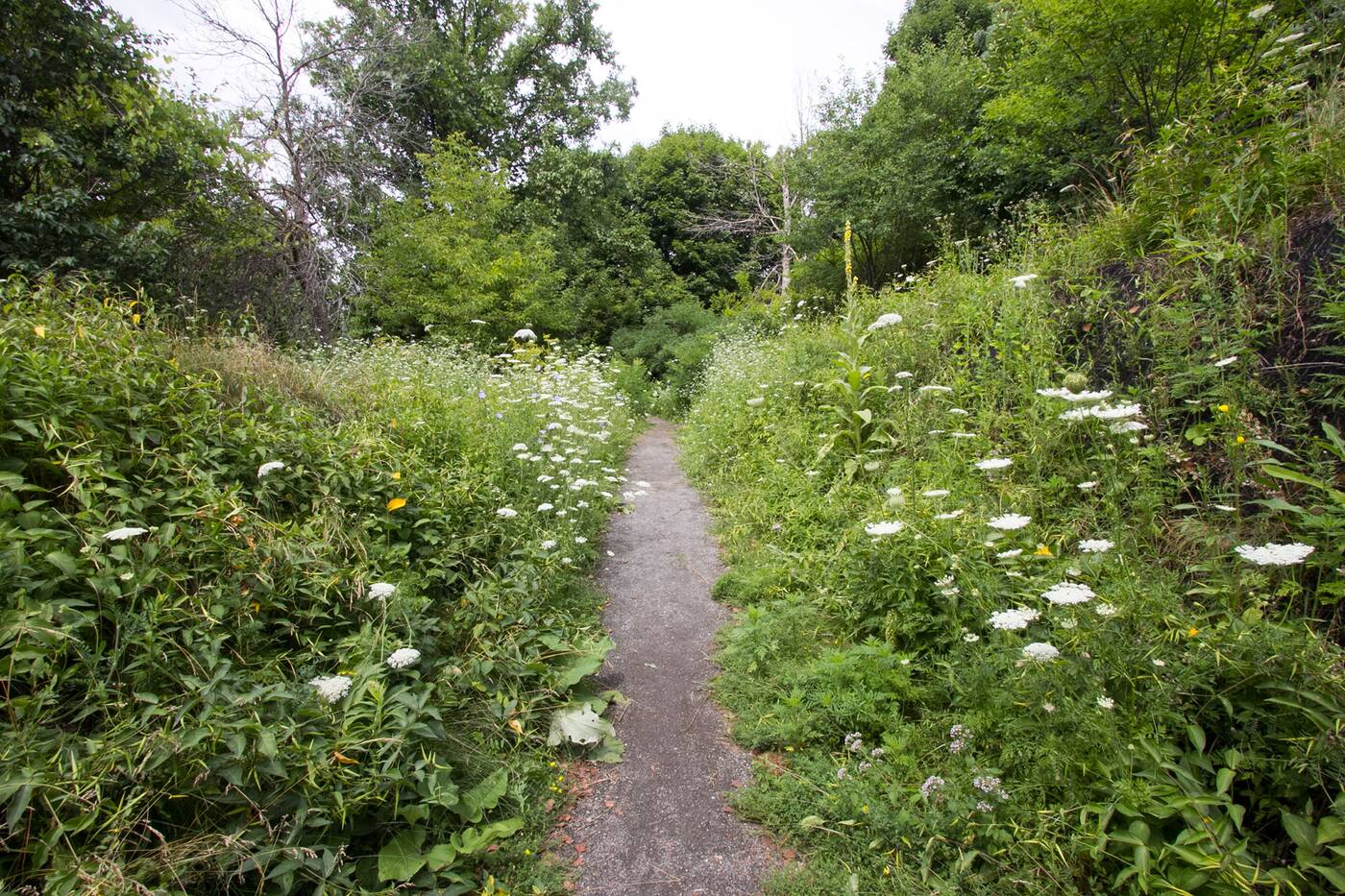
These paths are where nature-lovers can best admire the greenery of the Carolinian Life Zone: a bioregion whose northern edge reaches Toronto, offering a variety of plants and animals that you can't find elsewhere in the country, like black walnut trees.
This lush piece of land is definitely far less-frequented as its more central counterparts like Edwards Gardens, but that sense of serene seclusion is all the more reason to pay it a visit.
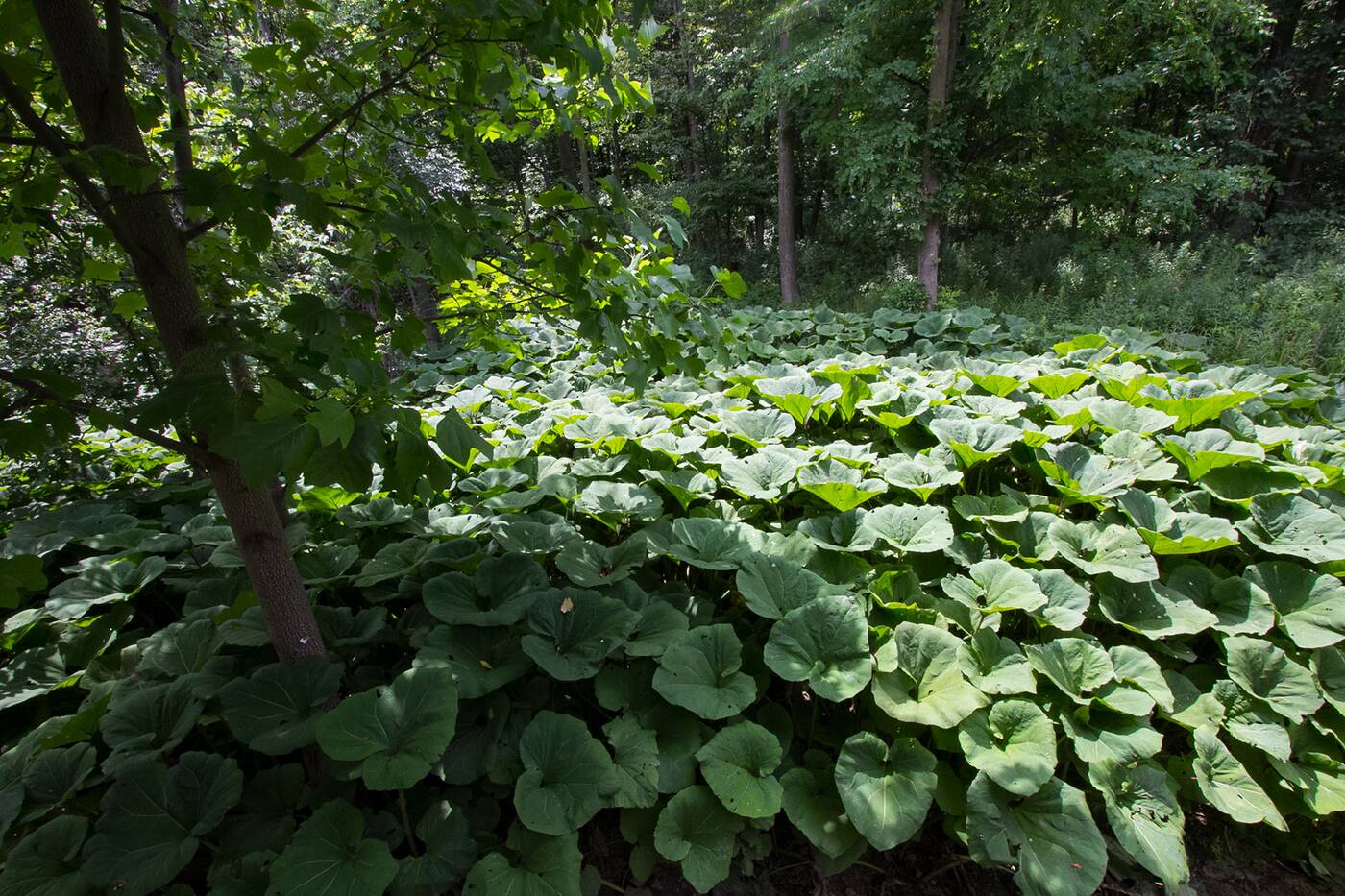
Tanya Mok. With files from Jennifer Tse.
Latest Videos
Latest Videos
Join the conversation Load comments







